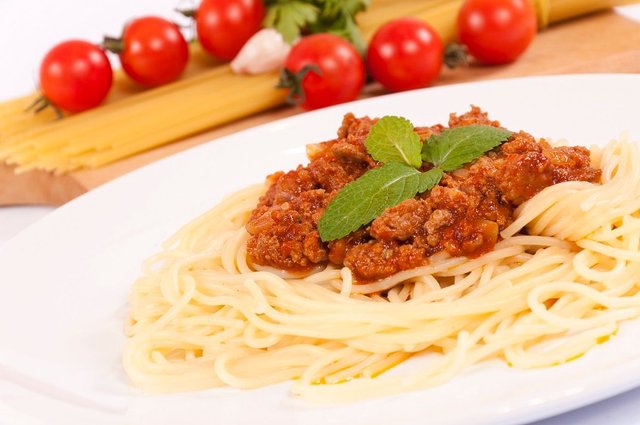The Confusion of Cultural Appropriation
I'm a privileged white girl; a born and raised Canadian of Scandinavian descent. During holidays, we devoured foods like lefsa and dared each other to eat lutefisk. We cracked jokes about Norwegians when spending time with our Swedish relatives, and about the Swedes when hanging out with the Norwegians. Occasionally, my grandpa would teach us basic Norwegian words, the extent of his own knowledge of the language. And that's largely where our cultural traditions ended.
But I am proud of my Canadian roots. I love that our country is a cultural mosaic, varied and vibrant. I love that we can watch powwow dancers and singers perform one day, and sit down to a Ukrainian smorgasbord the next. I love that I can ooh and aww over the colourful saris in one friend's wedding photos and the traditional African dresses in another's. Until recently, I only viewed our diverse cultures as something to celebrate, to learn about, to respect and enjoy.
That is, until the term "cultural appropriation" entered my vernacular.
What is cultural appropriation?

Courtesy of GraphicStock.com
Good ol' Wikipedia describes cultural appropriation as "the adoption or use of elements of one culture by members of another culture." These elements include food, fashion, symbols, technology, language and music.
Perhaps naively, I assumed that the rules around cultural appropriation were clear cut. Like, it's not OK to wear another culture's traditional attire as a Hallowe'en costume. Or make and sell knock-offs of culturally significant symbols, like the headdresses traditionally worn by First Nations chiefs. Or claim a cultural identity that isn't your own. Basically, I figured all I had to do to avoid cultural appropriation was show some respect and not be an asshole.
But then I saw this story in the news, where the Black Lives Matter organization in Toronto accused an NDP politician of cultural appropriation for using one of Beyoncé's song lyrics -- "To the left, to the left" -- in a political campaign promoting her left-leaning party.
Wait … what?
Unless I'm totally missing something, the song, Irreplaceable, isn't about black culture. It's about kicking out a cheating partner. Using the lyrics in a political campaign might be plagiarism, or break a copyright law, but cultural appropriation? Really?
Why cultural appropriation is confusing

Courtesy of GraphicStock.com
I don't agree with BLM Toronto in this situation, but it -- and the ongoing discussions about cultural appropriation -- have made me question my own understanding of what it means.
- Is it OK for me to make perogies or Szechuan chicken? What if I want to open an Italian restaurant and sell Italian food?
- My non-Aboriginal mom made us beaded leather moccasins when we were kids. Is that crossing a line? What if she would have sold them?
- Can I buy souvenirs of traditional symbols, like totem poles or dream catchers, if I buy them from Aboriginal artists?
- Can I get a henna tattoo? Are tattoos of Chinese symbols cultural appropriation, or just cliché?
- Can I quote Beyoncé song lyrics on my Facebook page?
- Can I write a fictional story about non-white characters? Can I interview people from other cultures and tell their stories? (This has become a huge debate in Canada.)
Maybe these questions are ridiculous, but maybe they aren't. And don't get me wrong, I do understand that it is unfair for people to benefit from stealing things that are culturally significant to certain groups, particularly if those groups have been oppressed. I get that its important to preserve cultural integrity and show respect for the traditions that others uphold. But it seems like the space between cultural celebration and cultural appropriation is becoming increasingly grey.

Courtesy of GraphicStock.com
I still love our cultural mosaic. I still want to believe that culture is something to be embraced and shared -- the food, the music, the language, the knowledge. And so I hope we can find the right balance, where we can all enjoy our varied and vibrant world, with healthy dose of respect.
Cultural appropriation is BS. Can pizza parlors only be run by Italians? Or has part of Italian culture become our culture? Cultures are meme pools, collections of ideas. People share ideas. Ideas spread and compete with each other. I see nothing wrong with adopting new ideas from other cultures if those ideas are better.
Say that you are an artist or a musician. You will naturally imitate other artists/musicians. It's only natural. Say that a native American decided to wear a suite and tie. Is that cultural appropriation? Can we even trace the origin of the suite and tie and say to whose culture it belongs? Does it matter? I don't think it does.
Agreed. I have an artist friend who uses aspects of what would be considered traditional Native American art in her work, because that form of art speaks to her and she has a great deal of appreciation and respect for it.
I like your discussion about Culture. As a person who is an immigrant since 2012 I can for sure say.. that it's amazing to build new reality and learn other cultures but one thing is really important and a lot of people are forgetting about it... is the fact that we should respect other cultures and believes. You don't need to understand them, like them.. but we have no right to destroying them. Sadly there is a lot of places where people are ashamed of their culture.. and try to change it ... it's silly how many aspects and problems this topic have! Thanks for sharing your point of view!
I think the answer to every one of your questions depends entirely on who you ask.
The idea as a standalone concept is absurd and easily offended people will eventually take it to an absurd level.
I didn't "invent" fire, am I not allowed to use it?
Simply applying the Golden Rule would go a long way.
"Do unto others as you would have them do unto you."
There's a lot of power in those words.
Upvoted and resteemed.
So true. If we approach others with an open mind and kindness, we get the best results. That has worked best for me. I also find that I've learned a lot by asking, "Why?" Some people don't like to be questioned, but most are willing to explain their views if they can see that you're genuinely interested.
There is this scene in the new house of cards season that deals with the black leadership problem
Life is a choice
The only person required to respect a certain culture is the one living in it.
If you live in China, respect Chinese culture. If you live in Canada, respect Canadian culture. Otherwise, approrpiate whatever the hell you want.
Culture only has the amount of value that it is given. Cultures come, live and pass. Parts of them remain in other cultures or they are lost to the world. If they were not worthy of appropriation, one might wanna say good riddance.
How exactly are cultures supposed to come together, if they dont appropriate parts of each other? If they dont share in each others achievements? They will forever remain strangers if they don't.
People prize melting pot/mozaic cultures and then criticize 'cultural appropriation'. That's absolutely paranoid, even for those choking themselves with political correctness.
True -- you can't bring groups of different people together and then expect that there won't be some give and take between them. In fact, I think we'd all be better for it, as long as it's handled with mutual respect.
Well, yes.
You earned yourself a follow.
I've thought about this topic a lot, being a white American male that plays afrobeat, funk, and latin music in a multicultural 12 piece band. In general, I believe:
Of course, you're right. Crossing the line can cause problems if enough people are doing it and benefitting from it at the expense of a marginalized group. Otherwise, enjoy your sushi with your dreads and rope sandals after your yoga class.
Respect goes a long way but if you see something and want to adopt it, that's fine, as long as you're not disrespecting others' sacred rituals, totems or holy items.
Cultural Appropriation is a failed narrative. It's offered by folks that are uncomfortable when culture intersects in a way they don't understand. That's a normal feeling....but it's not OK to judge people, it's not ok to punish people, it's not OK to reduce people because of another's failing to understand how culture flows, moves and evolves. Great piece....you nailed what needs to be said.